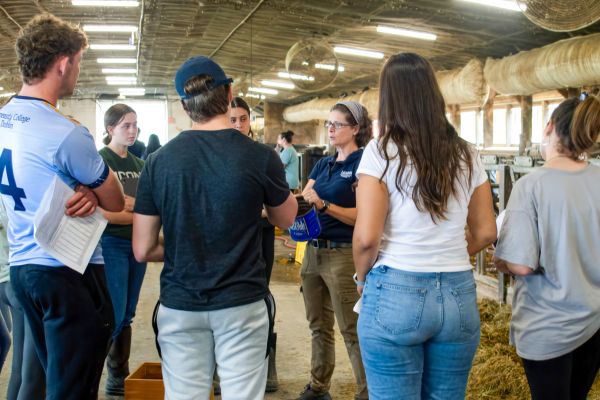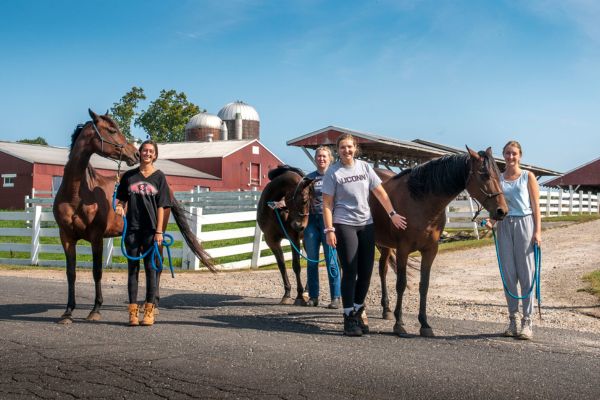Department of Animal Science
Bachelor of Science
Animal Science & Equine Science and Management
The Department of Animal Science at the University of Connecticut offers two Bachelor of Science (BS) degree programs: Animal Science and the newly launched Equine Science and Management. With a long-standing tradition dating back to 1881, the Animal Science program provides students with a comprehensive education in areas such as genetics, reproduction, biotechnology, food safety, and livestock management, supported by hands-on experiences with dairy and beef cattle, sheep, chickens, and horses all within minutes of walking distance on campus. The Equine Science and Management program builds on this legacy with a specialized focus on equine care, health, and industry practices. Both programs offer exceptional experiential learning, research, and hands-on opportunities, preparing graduates for a variety of unique and fulfilling careers in one of the many disciplines of animal science. These careers include traditional animal production, equine science, animal health industries, animal food processing, animal biotechnology, and companion animal industries. Students are also prepared for entrance to professional schools such as veterinary and graduate programs.

